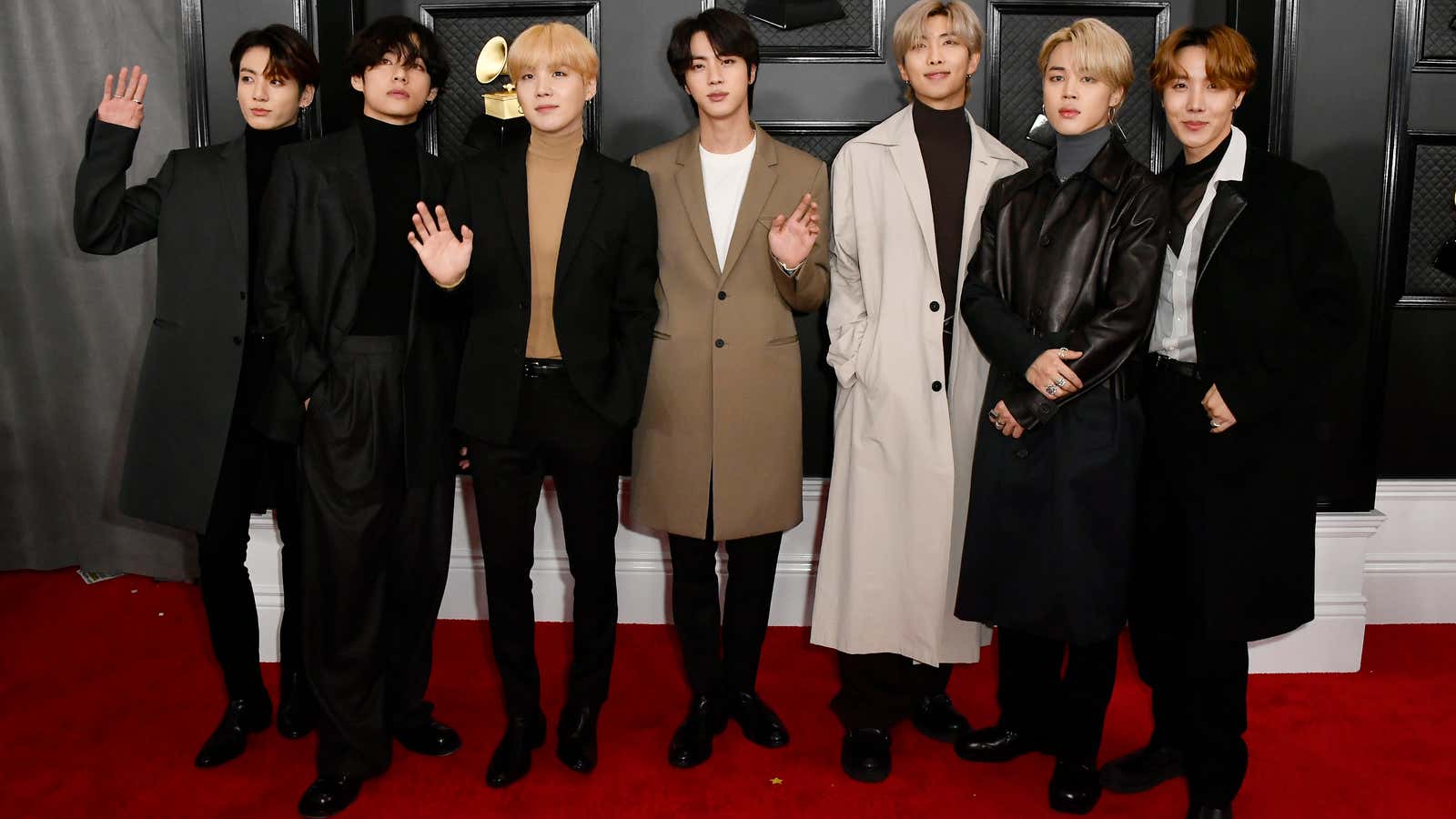The world of K-pop is consolidating.
Hybe, the company behind Korean boy band BTS, which has become one of the most popular musical groups in the world, recently bought a 15% stake in rival firm SM Entertainment, and reportedly offered to buy an additional 25%. The combined investment would be worth $900 million, good for 40%—and control—of one of K-pop’s most powerful companies.
The deal is already raising eyebrows with South Korea’s antitrust regulators, who will likely scrutinize how it will affect consumers.
SM Entertainment, the company behind K-pop acts like Girls’ Generation, Red Velvet, and EXO, was one of the industry’s three largest firms along with JYP and YG Entertainment before the ascendance of Hybe.
Hybe was founded as Big Hit Entertainment in 2005 and took its current name in 2021. But the company didn’t become the industry’s market leader until BTS became a global phenomenon. BTS was the top-selling artist in the world in 2022, according to the International Federation of the Phonographic Industry, a global nonprofit representing the recording industry. It also started the girl group NewJeans, one of the buzzier new acts in K-pop.
SM founder Lee Soo-man is cashing out of his stake in the company in an effort to boost SM’s value, the music website NME reported, but the sell-off also comes amid corporate infighting between Lee and SM CEO Chris Lee, his nephew. (Chris Lee accused his uncle of dodging taxes among other charges in a recent video statement.)
As part of its recent stock dump, SM also offloaded a 9% stake to Kakao Entertainment, a division of the Korean tech company of the same name, which is expected to counter Hybe’s current offer for an additional 25% stake in SM. Kakao Entertainment is a smaller entrant into K-pop, having started in 2021, but has found success with artists such as the singer IU and boy band Monsta X.
Helena Kosinski, vice president of global at the music data firm Luminate, told Quartz that “K-Pop is one of the fastest growing genres with some of the most committed and high spending fans in music right now.” In the US, K-pop has outpaced the total market in streaming: K-pop grew its listenership on streaming by 51% between 2019 and 2021, while the total US market grew just 32%, according to Luminate data.
An antitrust question in K-pop
The Fair Trade Commission, South Korea’s competition authority, told Reuters that it’s watching the deal.
“When a merger and acquisition takes place, we look at various businesses under these corporations, including management, record sales, streaming, tours and merchandise,” Im Kyeong-hwan, a Fair Trade Commission official, told Reuters in a statement. “Though there have been acquisition deals involving small and medium-sized entertainment agencies, a deal on this scale is a first for us.”
Align Partners, an activist fund that owns a 1% stake in SM Entertainment, opposes the deals to sell stock, and effective control of the company, to Hybe. Align believes that the deal will give Hybe pole position in the Korean music industry and hurt consumers.
It’s a big statement for Hybe, which spent years — under the Big Hit name — on shaky financial ground. But the timing is conspicuous: The company must diversify its revenue quickly, as its main moneymaker, BTS, is on hiatus until 2025 while its members complete South Korea’s mandatory military service.
